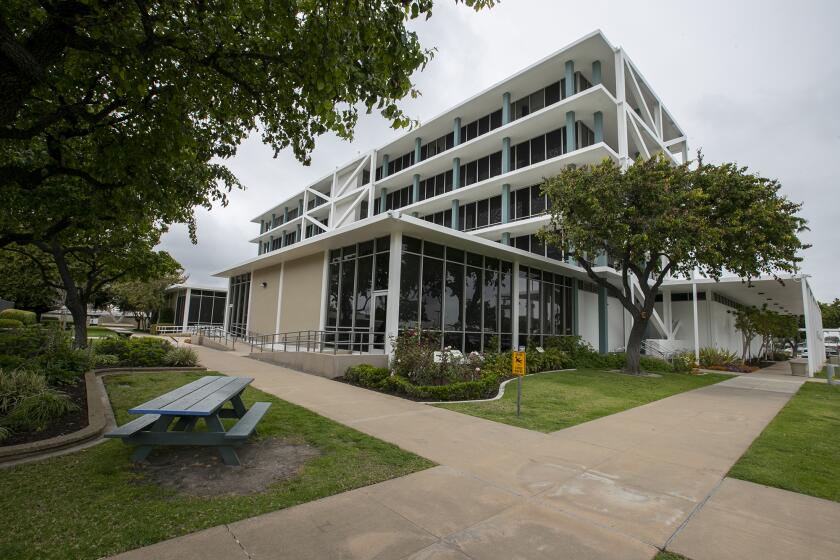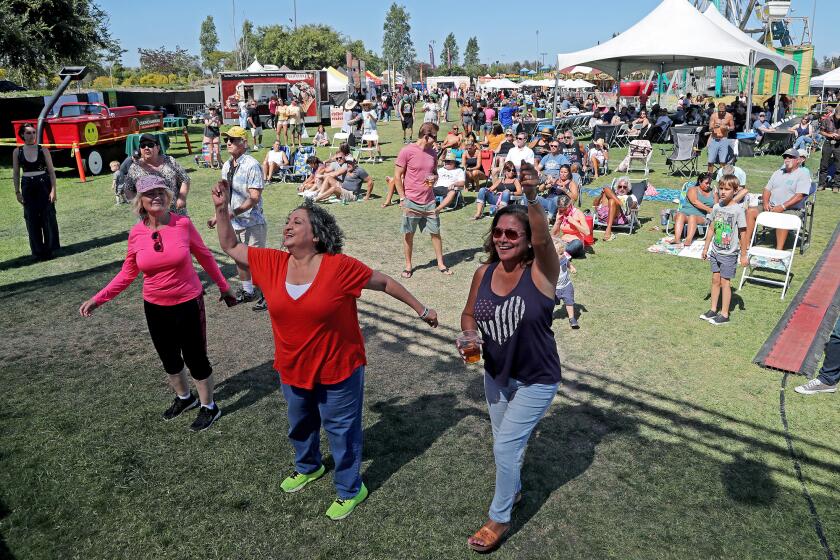Huntington Beach businesses will face 2.18% trash rate increase to comply with state recycling mandate
- Share via
Huntington Beach businesses will face a 2.18% trash rate increase by January to comply with a state mandate.
The Huntington Beach City Council on Monday backed Rainbow Environmental Services’ proposal, 6-1, with Mayor Pro Tem Erik Peterson dissenting without comment.
Assembly Bill 1826 requires businesses that generate specific amounts of food and organic waste each week to arrange for recycling services. The mandate is an effort to reduce disposal of organic waste, including food and green waste, and greenhouse gas emissions from landfills.
Rainbow says it needs the rate increase to provide new recycling services and help businesses make the transition.
Rainbow says its annual cost to provide organic recycling services to Huntington Beach businesses will be $632,566 through 2019.
Rainbow proposed that:
- Businesses that generate 4 cubic yards or more of organic waste per week must comply with the recycling requirement and rate increase by Sept. 1.
- Businesses that generate 4 cubic yards or more of solid waste per week, including trash and organics, must comply by January.
If there hasn’t been a significant reduction in landfill organics, businesses that generate 2 cubic yards or more of solid waste per week must comply by January 2020. That would be enforced at CalRecycle’s discretion.
Businesses that generate at least 4 cubic yards of organic waste per week will be required to pay for a separate organic waste recycling container, according to city officials.
Rainbow will transport the waste to a processing facility outside Huntington Beach.
Ten communities in Orange County have approved a similar plan, according to Rainbow officials.
Bicycle and scooter rental services banned for 120 days
In other business Monday, the council instituted a 120-day ban on bicycle and scooter sharing services so officials can discuss how other cities regulate them.
Companies such as Lime and Mobike enable customers in various cities to unlock and rent bicycles or scooters using a mobile app. In some cases, users can park the devices anywhere and re-lock them through the app.
Councilman Patrick Brenden brought the proposal forward, saying that although the services can ease traffic congestion, they also can create public nuisances and safety concerns.
City maintains rules for advocacy trips
The council decided to uphold what it has historically done for advocacy trips to Washington, D.C., and Sacramento.
Seniority determines who attends such trips, with the mayor first in line.
A council member who exceeds his or her budget can ask to use a colleague’s unspent funds to attend conferences.
Councilwoman Jill Hardy said the “big expensive” trip to Washington is typically delegated to the mayor, so the mayor’s budget is larger.
In the 2017-18 fiscal year, $21,100 was set aside for training and conferences. The mayor received $4,300 and the six other council members got $2,800 each, according to a staff report.
Peterson said it is “good policy” because the city charter says the mayor represents the council.
“It isn’t excluding anyone,” he said. “We just make sure the right people go.”
Advocacy trips are generally organized by third-party organizations such as the League of California Cities and the Assn. of California Cities - Orange County, according to the staff report.
Twitter: @vegapriscella
All the latest on Orange County from Orange County.
Get our free TimesOC newsletter.
You may occasionally receive promotional content from the Daily Pilot.




